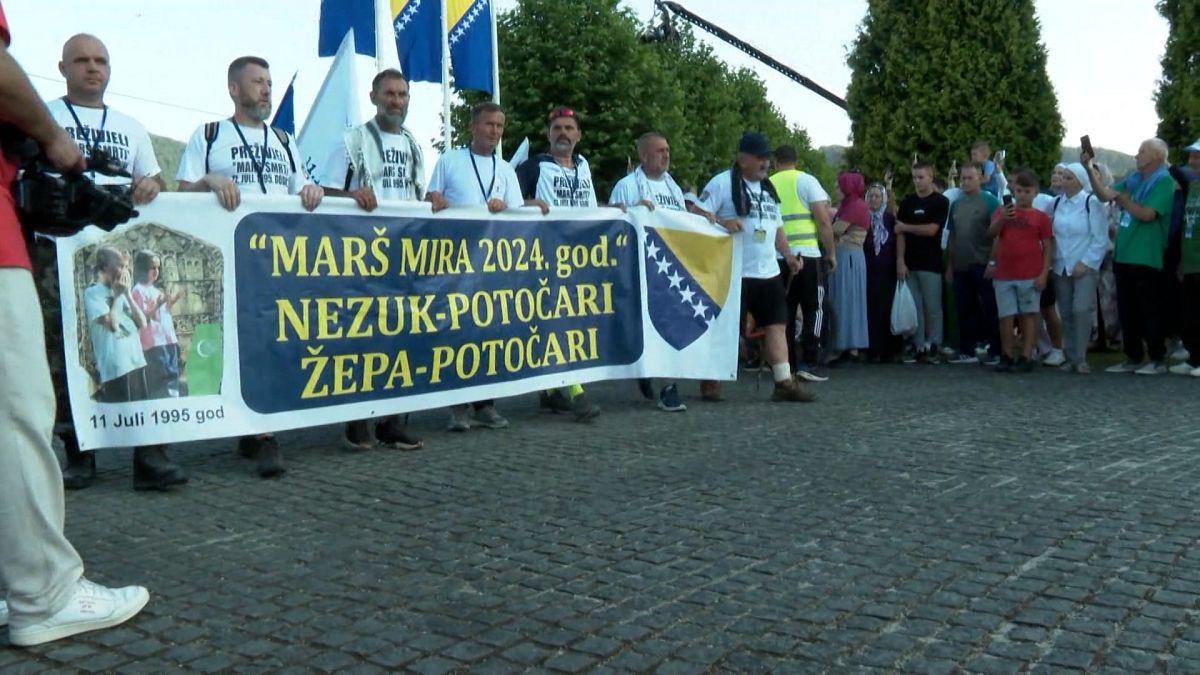In Bosnia and Herzegovina, thousands participated in a three-day peace march to commemorate the anniversary of the 1995 Srebrenica genocide. Surviving family members and children of the victims of the genocide joined hundreds of people in this march to remember the massacre that took place in 1995. Over the course of three days, participants retraced the route many Bosniaks took to find refuge, reaching Potočari. Despite facing intense heat and difficult terrain, around 6,000 people, including 250 children, walked this year. Tragically, one participant passed away during the march, but organisers did not disclose his identity until after the event.
Human rights activists held banners during the march with messages that said “We will never forget the genocide in Srebrenica” and the number “8372”, which refers to the number of victims. In May, the United Nations approved a resolution creating an international day of reflection and commemoration of the Srebrenica genocide, during which more than 8,000 Bosniak men and boys were killed by Bosnian Serb forces over three days in July 1995. The resolution was approved by a vote of 84-19, with 68 nations abstaining. Despite the resolution, neighbouring Serbia vehemently opposed it, claiming that the events in Srebrenica were not genocide but a “terrible crime”.
The Srebrenica genocide is counted among the worst atrocities of the Yugoslav dissolution wars of the 1990s. Following 45 years of peace under President Josip Broz Tito’s rule, Yugoslavia disintegrated in a series of wars, including in Bosnia. The war in Bosnia saw the three main ethnic groups – Bosnian Serbs, Bosnian Croats, and Bosniaks – pitted against each other along ethnic lines. On July 11, 1995, Bosnian Serbs overran a UN-protected safe area in Srebrenica, separating and killing more than 8,000 Bosniak men and boys. The perpetrators then dumped the victims’ bodies into mass graves to hide their war crimes.
The Bosnian Serb wartime leaders Radovan Karadžić and Ratko Mladić were convicted of genocide in Srebrenica by a special UN war crimes tribunal in The Hague. Nearly 50 Bosnian Serb officials have been sentenced to more than 700 years in prison for their roles in the Srebrenica killings. However, a sizable number of Serbian and Bosnian Serb officials still consider Karadžić and Mladić as national heroes, denying or minimizing the Srebrenica killings. The commemoration marches serve as a stark reminder of the brutal massacre that took place in 1995 and the long road to justice for the victims.










